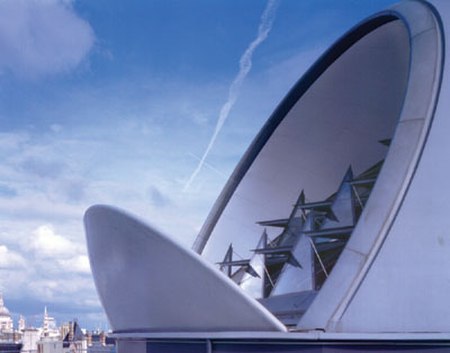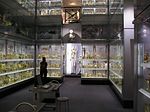British Library of Political and Economic Science
1896 establishments in the United KingdomAcademic libraries in LondonCommercial buildings completed in 1916Economics librariesLibraries established in 1896 ... and 4 more
Libraries in the City of WestminsterLondon School of EconomicsNeo-futurism architectureUse British English from March 2014

The British Library of Political and Economic Science, commonly referred to as "LSE Library", is the main library of the London School of Economics and Political Science (LSE). It is the largest library in the world devoted to the social sciences. The Library responds to around 6,500 visits from students and staff each day. In addition, it provides a specialist international research collection, serving over 12,000 registered external users each year. It is housed in the Lionel Robbins Building.
Excerpt from the Wikipedia article British Library of Political and Economic Science (License: CC BY-SA 3.0, Authors, Images).British Library of Political and Economic Science
Portugal Street, London Holborn
Geographical coordinates (GPS) Address External links Nearby Places Show on map
Geographical coordinates (GPS)
| Latitude | Longitude |
|---|---|
| N 51.514583333333 ° | E -0.11555555555556 ° |
Address
British Library of Political and Economic Science
Portugal Street 10
WC2A 2HD London, Holborn
England, United Kingdom
Open on Google Maps





